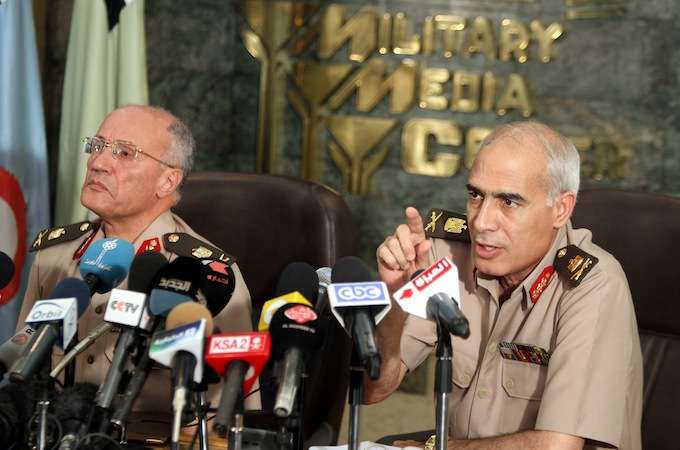 |
| SCAF generals Mohammed al-Assar and Mamdouh Shahin explain new decree |
What kind of game are they playing?
In Egypt the Supreme Council of the Armed Forces, or SCAF, has repeated its promise to turn over power to a civilian government within the month. But at the same time, in the wake of the apparent victory of Muslim Brotherhood candidate Mohamed Morsi (considered a revolutionary candidate in opposition to Mubarak regime candidate Ahmed Shafik), SCAF has taken on yet more powers to itself with a "constitutional annex decree" (اعلان دستوري تكميلي /a3lan disturi takmili).* The analysis is that the SCAF has done all this, before, during and after the elections, dissolving and shuttering the new parliament (with the connivance of the Supreme Constitutional Court) and issuing decrees, because they foresaw that Shafik, the Mubarak candidate in the two-man runoff, was not going to win.
What it looks like, is a long struggle, though it would be hard to conceive that the Egyptian people, awakened to the possibility of something like democratic government, would simply knuckle under, after all the events of the past sixteen months.
Here is a summary of the main points of the "constitutional annex decreee:"
-The generals will keep the power to write laws and set the budget until a legislature is elected
-The president cannot declare war unless he receives SCAF's approval
-SCAF can appoint a new constitutional assembly if the current one faces "obstacles." The assembly will draft a constitution, which will then be subject to a public referendum
-Legislative elections will be held within one month after the new constitution is adopted
In a long press conference, SCAF generals claimed the "constitutional annex decree" is only a way of easing the transition to a new constitution and a new government. That is their story. In fact the interference of the military into civilian life is enshirined, the military is protected from public scrutiny, and the military gives the military total power over military affairs, with Tantawi the supreme commander, and no ultimate civilian control over the military forces as in the past. The people call this a "military coup." People are saying that Morsi will be a president without powers, and that he will likely only be transitional -- despite the enormous campaign efforts -- and will not serve anything like a full four-year term. "All roads lead to military rule," wrote Sherine Tadros in an article for Al Jazeera English. According to the SCAF decrees, says Tadros, " the next President could have more powers than Mubarak did, or be a total lame duck - it's up to the SCAF. Which powers they reserve for themselves is also in their hands." How could this not be true as things now stand is hard to conceive. This annex renders any elected turnover of power virtually meaningless. The SCAF is retaining power to administer by decree.
|
|
| Al-Shuruq headline "A PRESIDENT WITHOUT POWERS" |
Another new council dominated by military
The latest (eight p.m. Monday, June 18, 2012), from Sharif Abdel Kouddous on Twitter: "SCAF forms National Defense Council of 17 members - 10 military, 6 political + President. Decisions by majority rule." The mood was already down, nobody holding up a proud ink-stained finger symbolizing having voted, people turning up to vote only to exclude the candidate they didn't want to win. Devotees of the old regime or law and order voting for Ahmed Shafik, those either Islamist or desperate to keep the old regime out voting for Mohamed Morsi. Still, the turnout was greater than expected, 49% of the electorate, Abdel Kouddous said, but the result seemingly meaningless. The fact remains that the Muslim Brotherhood is not going to be happy about any of the recent results except for their candidate's victory, and yet they remain the strongest, best organized opposition to the old regime.
It's not certain whether or not a win by Ahmed Shafik would have been entirely the military's victory. Some analysts feel that Mubarak himself was planning a turnover to his son that would have led to a more civilian-led government, a step Shafik might have continued. If this is true, then the SCAF may not have looked with much favor on a win by either of the two presidential candidates.
In any case, none of this favors the interests of the Egyptian people very much. The revolution in the streets has to continue. The people plan a massive public demonstration Tuesday, which the April 6 youth movement calls for on Facebook on "all the squares of Egypt."
________________
*Al Jazeera translation. Others have translated this more euphoniously as "supplementary constitutional declaration." But "decree" seems more appropriate, "annex" more vivid.
Further reading: Abdel Kouddous summed up the mess, the misgovernment, and the lack of reform since the January 25 revolution in a debut article for Al-Akhbar English published June 14, before the parliament was dissolved.
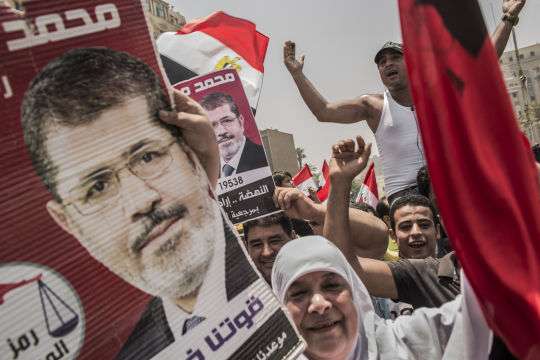 |
| Happy anyway: Mosi supporters celebrate (June 18, 2012) |
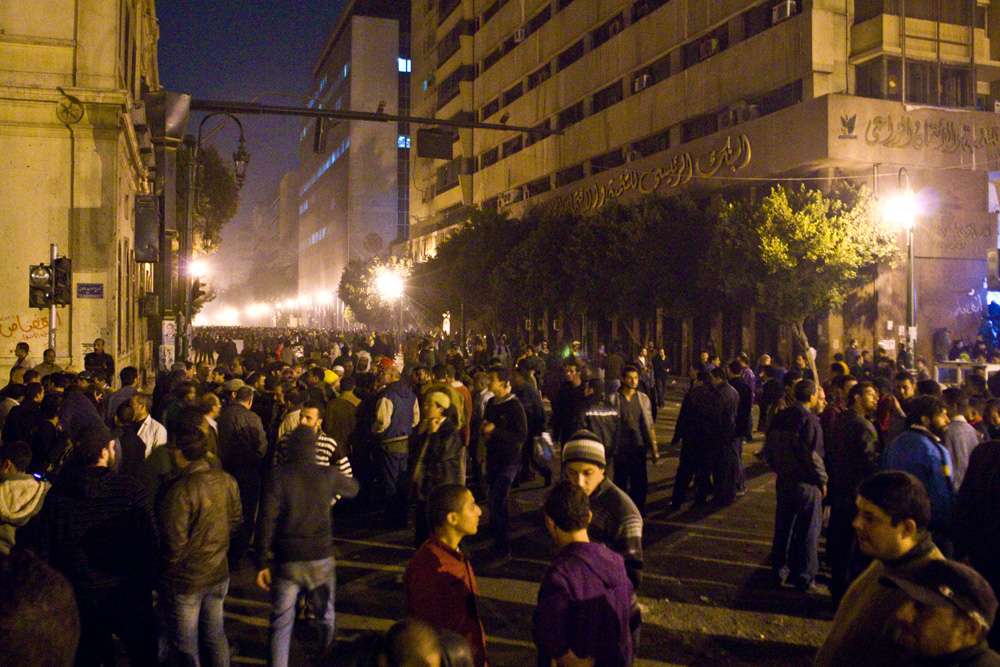 |
| Near Tahrir Square June 19 |
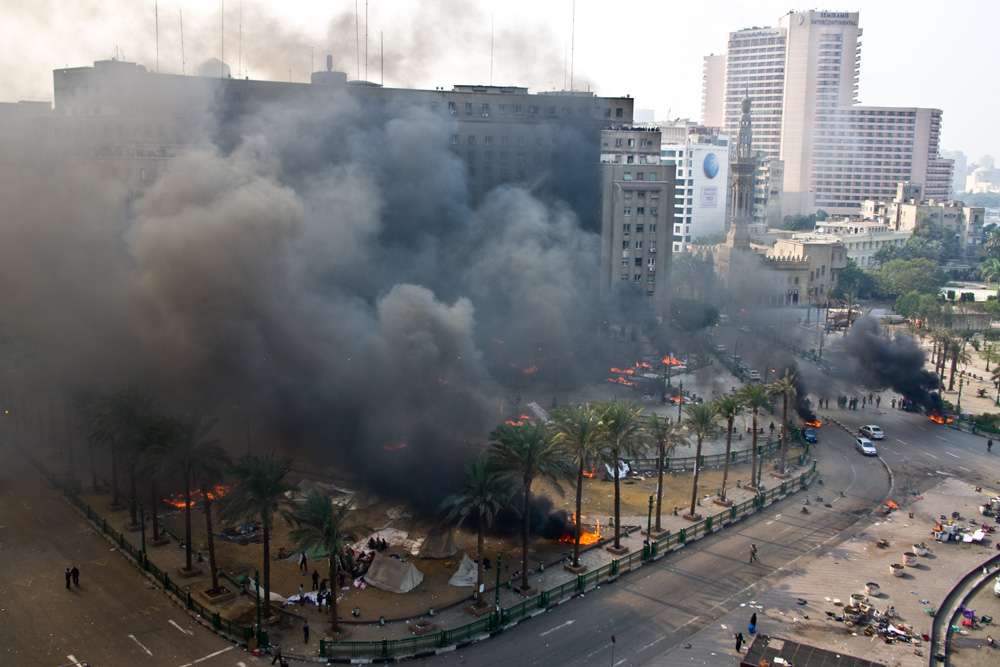 |
| Tents burned, the square cleared June 19 |
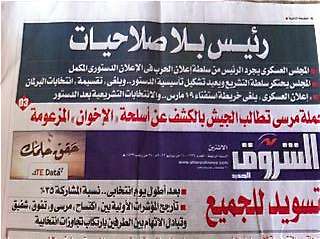
No comments:
Post a Comment